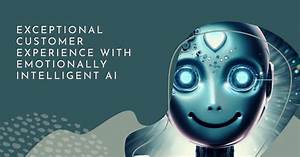People often ask what advantage humans still hold as artificial intelligence becomes more advanced. It’s a fair question. Machines are fast, tireless, and can process data on a scale we can’t begin to match. But even with those strengths, AI still has limits — and the human edge remains real and important.
First, humans can feel empathy.
AI can simulate empathy. It can mimic concern. But it cannot feel. Humans can feel for other people, for animals, even for an old apricot tree trying to survive a harsh season. That capacity to connect emotionally — even beyond logic or usefulness — is part of what makes us human. It’s a deep social and evolutionary trait.
We detect subtext. We read tone. We pick up meaning through gestures and silences. This difference matters in fields like counseling, negotiation, teaching, leadership and customer service. The edge is not technical. It is emotional.
Second, creativity remains a uniquely human trait.
AI can remix existing content. It can imitate. It can even produce fresh ideas by combining elements it has learned. But those ideas are built on what came before. A human mind can leap beyond data to generate something never seen. We invent from imagination. We create from intuition. This ability to conceive something entirely new remains one of our strongest edges.

Can AI ever gain a creative advantage? Maybe. But so far, it’s not even close.
Third, humans understand context in a deeper way.
AI can be trained on massive data sets. It can be taught rules. But it still fails when the rules change or the context shifts in a subtle way. Humans create context from lived experience. We interpret based on history, emotion, motivation, and culture. Our decisions aren’t just based on data or logic — they are layered and complex.
Context is how we know what someone really meant, even when they don’t say it directly. AI still struggles with that kind of nuance.
Fourth, humans are capable of ethics.
We have strong feelings about what’s right and wrong. AI doesn’t have a moral compass. It simply carries out instructions, without worrying whether it’s the right thing to do. Most humans think in judgmental terms about ethics. We debate it. We argue over it. And the fact that we care means we’re less efficient than AI. We often make decisions based on how we feel — and nothing more. That might not always be logical, but it’s part of being human.
Fifth, humans can handle ambiguity better than AI.
We operate with limited information all the time. We make decisions based on hunches. We choose without knowing all the variables. AI prefers clean data and clear instructions. In the messy real world, people still benefit from their gut feelings. We are comfortable with uncertainty in a way machines are not
The goal is not to compete with AI as equals. Every second, AI keeps getting smarter. We’ll lose if we try to out-calculate or out-memorize a machine. But we win when we lead with the qualities that make us human. Emotional depth. Moral insight. True creativity. Lived context. That is the human edge — and it’s not going away.